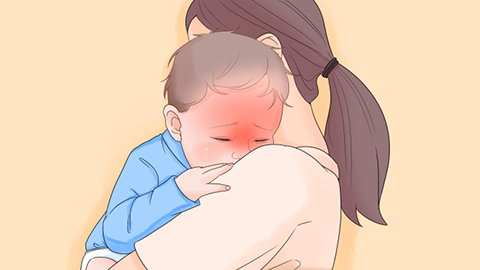What should I do if my 12-month-old baby has a fever?
Generally speaking, fever refers to elevated body temperature. Fever in a 12-month-old baby is usually related to environmental factors, prolonged crying, indigestion, upper respiratory tract infections, infantile emergency rash, and other causes. Treatment may include general care and medication according to the underlying cause. If the condition is urgent, prompt medical attention is necessary. Detailed analysis is as follows:

1. Environmental factors
If the ambient temperature in an infant's environment is too high, their body temperature may also rise. This is a relatively common condition that can be relieved by improving the environment and increasing fluid intake appropriately.
2. Prolonged crying
Extended periods of crying in infants can accelerate metabolism, leading to increased body heat and possibly fever. In such cases, observation is recommended without specific treatment, as symptoms usually subside gradually once the crying stops.
3. Indigestion
Indigestion often results from improper diet, such as overeating or consuming excessively greasy foods. When food accumulates in the intestines and generates heat, it may cause fever. This condition is often accompanied by symptoms such as abdominal pain and bloating. Treatment may involve medications like Lactobacillus sporogenes powder, montmorillonite powder, and domperidone suspension, under a physician's guidance.
4. Upper respiratory tract infection
Upper respiratory tract infections may be caused by pathogens such as rhinovirus or streptococcus. When inflammatory mediators are produced by the body and released systemically, fever may occur. Symptoms often include nasal congestion and cough. It is recommended to ensure adequate rest for the baby and follow medical advice for the use of medications such as oseltamivir granules, amoxicillin-clavulanate potassium dry suspension, and paracetamol oral solution.
5. Infantile emergency rash
Infantile emergency rash is typically associated with viral infections, such as human herpesvirus 6. The acute phase of this illness can cause sudden high fever, with a longer disease course, and may also present with symptoms like irritability and reduced appetite. Treatment may involve medications such as ribavirin granules, calamine lotion, and ibuprofen suspension, under medical supervision.
It should be noted that the above-mentioned antipyretic medications should be selected based on the infant's temperature readings, and self-medication should be avoided. Additionally, if adverse reactions are severe, attention should be given to maintaining a balanced diet and regular作息 (作息 here likely means作息 patterns or lifestyle habits) to promote recovery.








